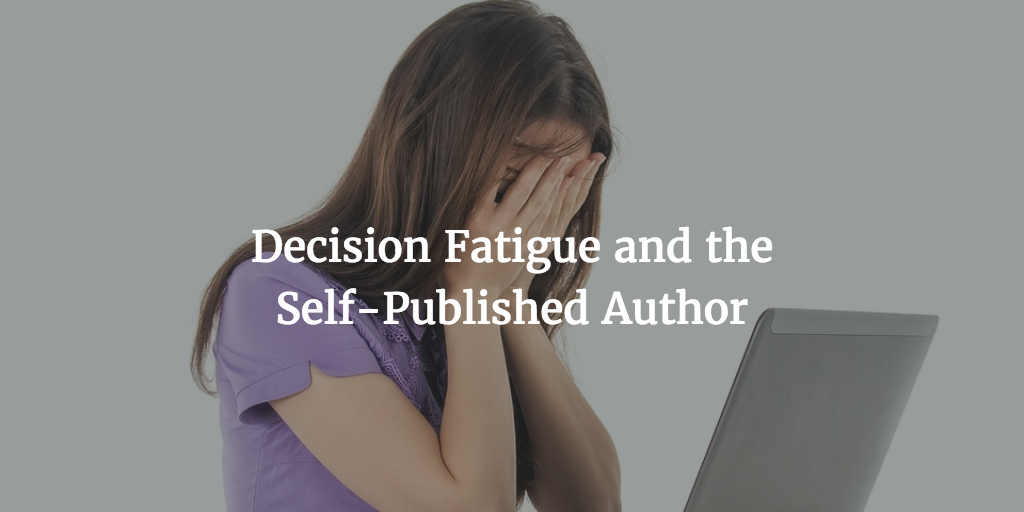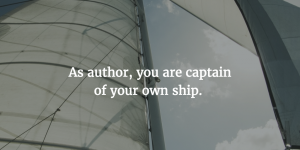Californians face 17 state-wide propositions on the ballot in this election, on issues ranging from marijuana legalization to hospital fees. As diligent citizens, we need to wade through the pros and cons of each, read commentary, and do research, while resisting the temptation to vote no on everything or abstain from voting.
Voting in California is all about avoiding decision fatigue.
Cognitive scientists tell us that making decisions consumes finite stores of energy. The more decisions we make, the more of our reserves we consume. Even trivial decisions, such as what to wear or how to answer an email, exact a mental cost. (Apparently that’s why Mark Zuckerberg wears the same thing everyday.)
Eventually, we tired of doing the mental heavy-lifting of analysis and either look for shortcuts or put off decisions altogether. And that can be dangerous for important decisions.
Independent Publishing and Decision Fatigue
Physically, decision fatigue is easily cured with rest and sustenance. That’s why many people do their important work (writing) early in the day, before heading down the rabbit hole of email and social media.
Book authors may suffer from a kind of meta decision fatigue, which grows over the course of the publishing process and peaks during marketing and promotion.
Independently published authors are particularly vulnerable; as publisher of your work, you own every decision. If you are new to publishing, each decision about getting your book into the world can be time-consuming and draining.
- Where and how should you publish, and in which formats?
- What should the interior look like?
- How will you get the cover design?
- How should you price the book?
Marketing and promotion brings another tidal wave of decisions.
- Do you do a virtual book tour? Blog? Podcast?
- Should you hire a publicist? A virtual assistant? Manage it yourself?
- Should you advertise, and if so, where?
- How do you get reviews?
- What about joining Kindle Select?
By the time the book is released many authors submit to their own kind of decision fatigue. Having gotten so far in the process, they look for an easy path forward. They want someone to tell them exactly what decisions to make.
The problem is, experts may be offering advice that doesn’t make sense for your specific situation.
As author of a book, you own many decisions about publishing and promotion. Don’t let decision fatigue derail your success.
Defending Against Decision Fatigue
When you look for the easy way out, you may make choices that don’t advance your goals for your book.
- You pay thousands of dollars to someone to execute a marketing strategy that is ineffective for your book.
- You listen to promises of easy, quick riches and neglect doing the important work.
- You cut corners and publish a book you aren’t proud of.
Somehow you have to strike the balance between learning as much as you can about the process and becoming overwhelmed with the options available.
Here are a few strategies.
Filter Out the Noise
I realize the irony of this situation, but I hereby give you permission to tune out much of what you see or read.
Put aside your fear of missing out (FOMO) on the best book marketing tactic ever, or the one that will propel your book to greatness. You don’t have to sign up for every webinar, email list, book promotion service, or publicity tactic.
Instead, you’re going to come up with a strategy, learn, and grow over time. Commit to creating and tuning the right strategy for your book.
Tweet this: Balance a learning mindset with strong filters.
Focus on Your Objectives
Maintain a strong sense of your objectives to filter out messages quickly. For every tactic, offer, or suggestion you see, compare it to your objectives.
If your most important objective is getting your message out in the world, then dismiss out-of-hand the people with get-rich-from-your-book schemes. Keep your core audience and purpose in mind, and use that as a guide.
Tweet this: As author, you are the captain: choose your crew with care. #publishing
Another strategy is to identify those people that you do want to emulate. Learn what they do, how they approach the work, and ask yourself what they would in your situation. (See Find Your Writing North Star.)
Listen to Your Gut
Behavioral Economics describe two distinct decision-making systems: one slow, intentional, and rational, and the other quick and intuitive.
That fast, intuitive system sometimes it offers important clues that can save you a great deal of time agonizing over decisions. Pay attention to it.
If you’re not comfortable with the recommended tactics, those tactics may not make sense for your audience. If a pundit rubs you the wrong way, they may not be aligned with the kind of author you want to be. Feel free to tune them out.
Allocate Time to Learn
Learn with discipline. Allot a certain amount of time to learning each week, such as one hour for a webinar, another two hours for messing around trying something. Invest more learning time early on, and dial it back over time.
When something interesting comes along, put it in your pile of things to explore during your budgeted self-education time. If it looks really exciting, put it at the top of the pile.
Just don’t try to do everything at once. Budget your money and attention to preserve your writing time and your sanity.

